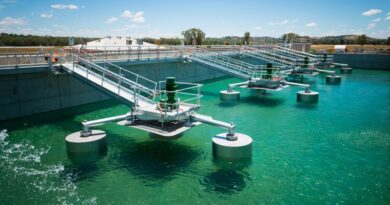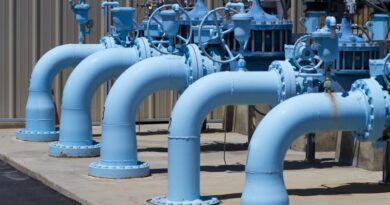Unilever commits $1.1 bn for new climate change & nature fund; undertake water preservation

British-Dutch consumer goods multinational Unilever has announced creation of a new climate & nature fund with a commitment to invest $1.1 billion across all its brands over the next 10 years. Water preservation will be one of the main focus areas for the Rotterdam-based company to take meaningful and decisive action in with the proposed fund.
While the new range of measures announced by Unilever have been being designed to improve health of the planet through decisive action to fight climate change, and protect and regenerate nature, the company said it will also join the 2030 Water Resources Group, a multi-stakeholder platform hosted by the World Bank, to contribute to transformative change and building resilience in water management in key water-stressed markets, such as India, Brazil, South Africa, Vietnam and Indonesia.
Unilever intends to work with stakeholders and governments and to improve access to water, especially in water-stressed areas.
The company said it intends to “step up efforts to preserve water” to include implementation of water stewardship programmes for local communities in 100 locations over the 10-year period. These efforts will focus on water quality and supply risks near factory sites, globally, while also addressing local farmer and community access to water. This model will partner with key suppliers, who also participate in similar efforts to ensure local access.
The call to join the 2030 WRG is in line with these efforts, Unilever said.
“While the world is dealing with the devastating effects of the Covid-19 pandemic, and grappling with serious issues of inequality, we can’t let ourselves forget that the climate crisis is still a threat to all of us. Climate change, nature degradation, biodiversity decline, water scarcity – all these issues are interconnected, and we must address them all simultaneously”, said Unilever CEO Alan Jope.
“In doing so, we must also recognise that the climate crisis is not only an environmental emergency; it also has a terrible impact on lives and livelihoods. We, therefore, have a responsibility to help tackle the crisis: as a business, and through direct action by our brands.”
The company said the new commitments are based on fighting the climate crisis by addressing its own carbon emissions, starting with halving their greenhouse gas footprint by 2030 and committing to net zero emissions throughout the value chain from all products by 2039. That effort will be supplemented by sustainable sourcing practices and by using satellite monitoring and geolocation tracking to verify sustainably sourced forest-related commodities.
According to the World Bank, already, 40 per cent of the world’s population is affected by water scarcity, and more than 2.1 billion people consume unsafe drinking water.
For implementing water stewardship programmes for local communities in 100 locations, Unilever will use the learnings from its Prabhat programme in India, which tackles water quality and supply risks around its factories.
This programme takes a community approach to water management, and not only helps farmers across cropping seasons, but also addresses the basic human need for adequate and easy access to water. The company will build a model for this water stewardship programme, and partner with key suppliers for them to also run similar programmes, it said.
In India, through its wholly owned subsidiary Hindustan Unilever Limited, Unilever offers a wide range of RO, UV and non-electric water purifiers under the Pureit brand name.
On the “micro-level”, Unilever intends to globally help regenerate nature through programmes that serve to increase biodiversity, restore soil health, and preserve water conservation and access. Unilever will look to farmers and smallholders who share the same objectives in protecting and regenerating farm environment.
The company also intends to advance research into more biodegradable formulations for its products, in order to limit impact on water and aquatic ecosystems.
In most parts of the world, the economic and social inclusion of farmers and smallholders in sustainable agricultural production is the single most important driver of change for halting deforestation, restoring forests and helping regenerate nature. “In the end, they are the stewards of the land. We must, therefore, empower and work with a new generation of farmers and smallholders in order to make a step change in regenerating nature.”
“Our collective responsibility in tackling the climate crisis is to drive an absolute reduction of greenhouse gas emissions, not simply focus on offsetting – and we have the scale and determination to make it happen. But this is not enough. If we want to have a healthy planet long into the future, we must also look after nature: forests, soil biodiversity and water ecosystems”, said Unilever Chief Supply Chain Officer Marc Engel.


